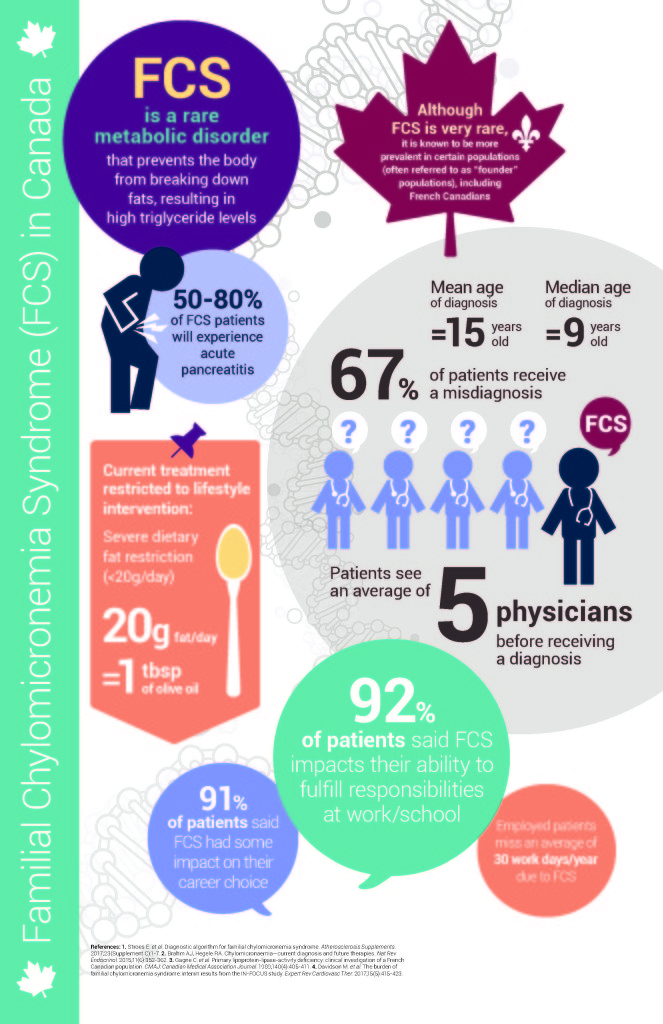Friday November 2, 2018 marks the 1st FCS Awareness Day!
Today, Friday November 2, 2018 marks the 1st FCS Awareness Day! Please join us, and others across the globe to increase awareness by sharing this message on your social networks!
What Is Familial Chylomicronemia Syndrome?
Familial chylomicronemia syndrome (FCS) is a rare, life-threatening disease that prevents the body from digesting fats. Even a little fat can make someone with FCS ill.
What Causes FCS?
FCS is a genetic disorder, meaning it is passed down from parents and present from birth. With FCS, the body can’t digest fats, such as triglycerides (TGs).
What Are the Signs and Symptoms of FCS?
A distinctive sign of FCS is extremely high TGs (greater than 10 mmol/L or 880 mg/dL) and blood that appears fatty or milky after it is drawn. Patients often have severe, sometimes daily, stomach pain and often experience back pain.
Because of sustained high TG levels, patients with FCS are also at risk of a painful condition called pancreatitis, which is inflammation of the pancreas Patients may also experience vomiting and diarrhea. If undiagnosed, FCS can have serious, life-threatening complications.
Other signs and symptoms that patients with FCS may experience are:
- xanthomas (fatty deposits in the skin)
- lipemia retinalis (milky appearance of retinal veins and arteries)
- neurological symptoms (such as forgetfulness, fatigue, or/and memory loss)
Want to learn more? Need Support?
Please visit www.fcsfocus.ca or contact The FCS Focus Education & Support Program (toll-free) 1-833-229-1034 / (email) support@fcseducation.ca
Other Names for FCS: Chylomicronemia syndrome, Familial chylomicronemia, Hyperlipidemia Type 1, Lipoprotein lipase deficiency (LPLD), Burger-Grutz syndrome, or Hyperlipoproteinemia Type 1A.3 It may also be referred to by terms that are not specific, such as a genetic lipid, TG, or fat disorder.
Press Release on 1st FCS Awareness Day!: https://ir.akceatx.com/news-releases/news-release-details/akcea-recognizes-first-global-familial-chylomicronemia-syndrome


